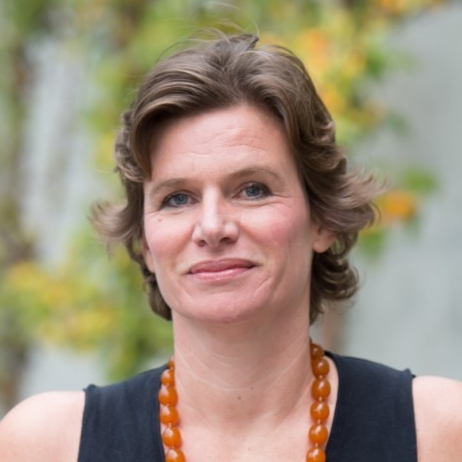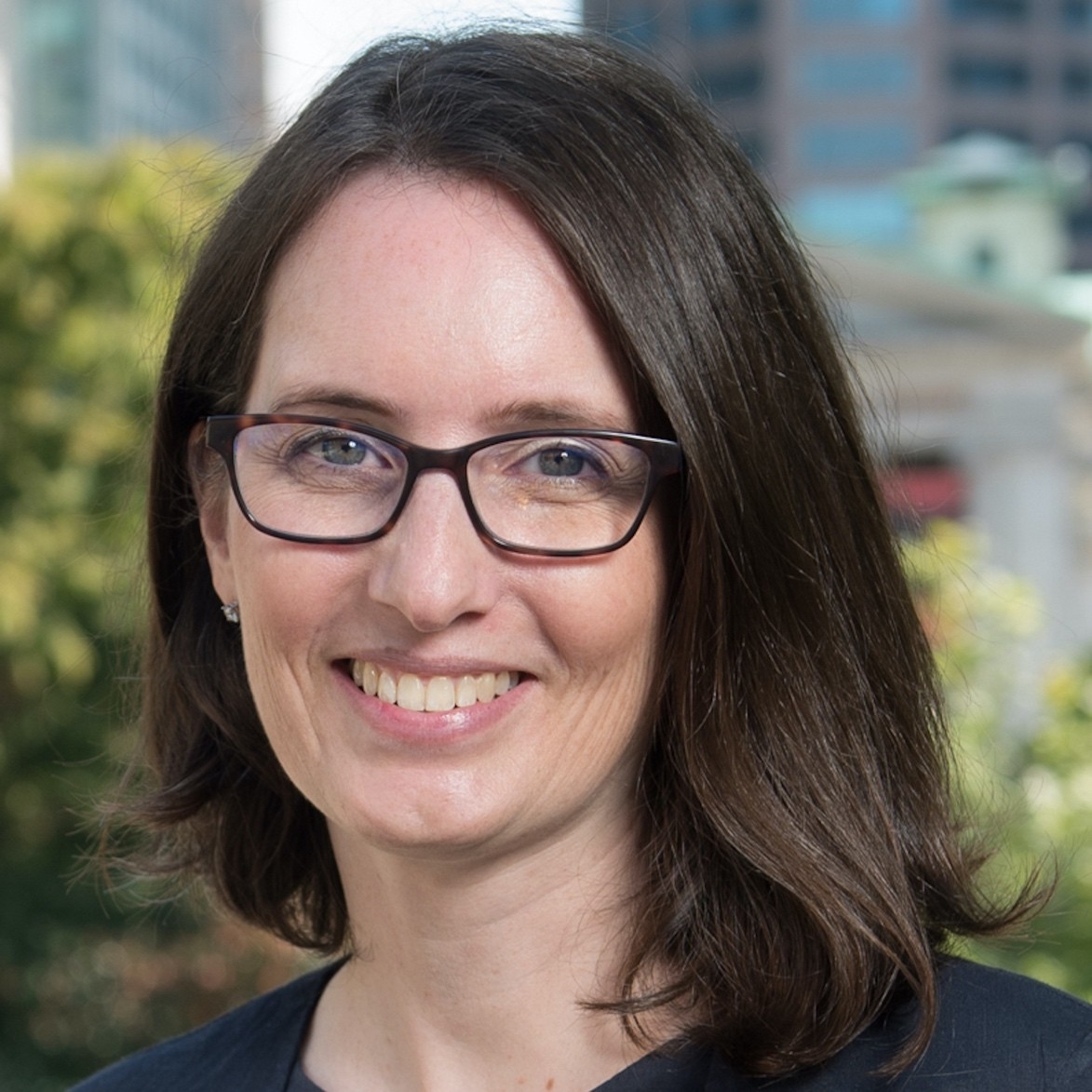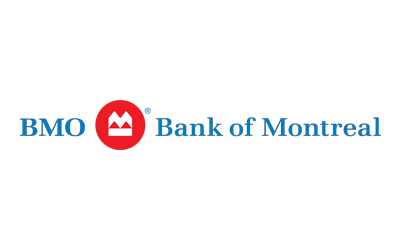
SFU Presents: Mariana Mazzucato
2021, Series Munro Lectures, Economy, Future of Work
This lecture is presented with support from the BMO Lecture Series and John M. Munro Lecture endowments.
Mariana Mazzucato is one of the most influential—and for some, the “scariest”—economists in the world.
In her latest book, Mission Economy: A Moonshot Guide to Changing Capitalism, Mazzucato argues that capitalism is stuck. Even before the COVID-19 pandemic, it had no answers to a host of problems, including disease, inequality, the digital divide and, perhaps most concerningly, the environmental crisis. Mazzucato argues that governments and other public sector institutions must play a critical role—in partnership with the private sector and engaged citizens—in leading missions to tackle the grand challenges of our times.
A Professor in the Economics of Innovation and Public Value at University College London (UCL) and a 2020 SFU honorary degree recipient, Mazzucato advises policymakers around the world on innovation-led, inclusive and sustainable growth. She and her team at UCL’s Institute for Innovation and Public Purpose (IIPP) have been hired by the Government of British Columbia to advise on a long-term economic plan that will steer the province through the post-pandemic era.
Mazzucato will challenge us to reconceptualize value and think about how mission-oriented innovation could contribute to British Columbia’s unique economic context. The lecture will be followed by a conversation and audience Q&A moderated by Stephanie Bertels, Director of SFU Beedie’s Centre for Corporate Governance and Sustainability.
This lecture is co-produced by SFU Public Square and the SFU Centre for Corporate Governance and Sustainability.
8:30 a.m. (Vancouver)
11:30 a.m. (Toronto)
4:30 p.m. (London)
Online Event
Closed captioning in English will be available at this event.
About the Munro Lecture
The Munro Lecture is named after Jock Munro, an economist who served, with distinction, as SFU’s Vice-President, Academic.
On this Page

Mariana Mazzucato
Mariana Mazzucato (Ph.D.) is Professor in the Economics of Innovation and Public Value at University College London (UCL), where she is Founding Director of the UCL Institute for Innovation & Public Purpose (IIP). She is winner of international prizes including the 2020 John von Neumann Award, the 2019 All European Academies Madame de Staël Prize for Cultural Values, and 2018 Leontief Prize for Advancing the Frontiers of Economic Thought. She was named as one of the '3 most important thinkers about innovation' by The New Republic, one of the 50 most creative people in business in 2020 by Fast Company, and one of the 50 most creative people in business by WIRED.
She is the author of three highly-acclaimed books: The Entrepreneurial State: Debunking Public vs. Private Sector Myths (2013), The Value of Everything: making and taking in the global economy (2018) and the newly released, Mission Economy: A Moonshot Guide to Changing Capitalism (2021).
She advises policymakers around the world on innovation-led inclusive and sustainable growth. Her current roles include being Chair of the World Health Organization’s Economic Council on Health for All and a member of the South African President’s Economic Advisory Council, the Scottish Government’s Council of Economic Advisors, and the United Nations High-level Advisory Board (HLAB) on Economic and Social Affairs, among others.
Moderator

Dr. Stephanie Bertels
Dr. Stephanie Bertels is the VanDusen Professor of Sustainability and the Director of the Centre for Corporate Governance and Sustainability at SFU's Beedie School of Business. Stephanie is also the founder of the Embedding Project, a public-benefit research collaborative that develops practical tools to help companies embed social and environmental factors across their operations and decision-making. She regularly advises global companies and their boards on issues related to strategy, governance, and environmental and social sustainability.
The economy got you down? Mariana Mazzucato is on a mission to change that.
By Mireta Strandberg-Salmon
SFU Resource and Environmental Management student and Embedding Project researcher
@mireta_s
If we’ve learnt anything during the upheaval and disruption caused by the pandemic, it’s that things around here are changing. “Normal” is a relic of the past; the time for transformation is now.
The climate is changing at a frightful pace, with B.C. experiencing record-breaking temperatures, drought, and wildfires last summer and more unprecedented climate impacts looming on the horizon. Nature is changing, with biodiversity loss worldwide threatening the sixth mass extinction, and half of monitored wildlife species in Canada declining 83 per cent on average from 1970 to 2014. Society is changing, with equity, diversity and inclusion emerging as key priorities for institutions like Simon Fraser University as Indigenous and Black communities continue to call out the ugly truths of Canada’s history and the ongoing legacies of colonialism and institutional racism.
The question is, how is the economy changing? Or better yet, how does the economy need to change to advance—rather than undermine—socio-ecological wellbeing?
You will probably agree that the “old economy,” the one that prioritized profit at the expense of ecosystems and people, is not working. In fact, the old economy is the problem—the root cause of the climate, biodiversity, and inequality crises facing us today. But what if someone told you that the economy can also be the solution to these crises?
Well, that someone is Mariana Mazzucato and that solution is a mission economy.
Supported by:
JOHN M. MUNRO LECTURE ENDOWMENT
Co-produced with:
-

SFU Presents: Mariana Mazzucato
Join us for an online lecture with internationally renowned economist Mariana Mazzucato, author of Mission Economy: A Moonshot Guide to Changing Capitalism and advisor to policymakers around the world on innovation-led, inclusive and sustainable growth.
Read More →
-

Generous Thinking | Munro Lecture
Generous Thinking proposes that those of us who work within the university might take a hard look at the ways we connect and communicate with a range of off-campus communities about our shared interests and concerns in order to begin rebuilding the relationship between the university and the public that it is meant to serve.
Read More →
-

Can India be a hope for the world?
With a government determined to promote education and entrepreneurship in a country rich in diversity, can India reinvent itself to emerge as the hope for a troubled world?
Read More →
-

Heritage and Knowledge: Decolonizing the Research Process
Dr. Linda Tuhiwai Smith, Professor of Education and Māori Development, speaks on decolonizing the research process.
Read More →





